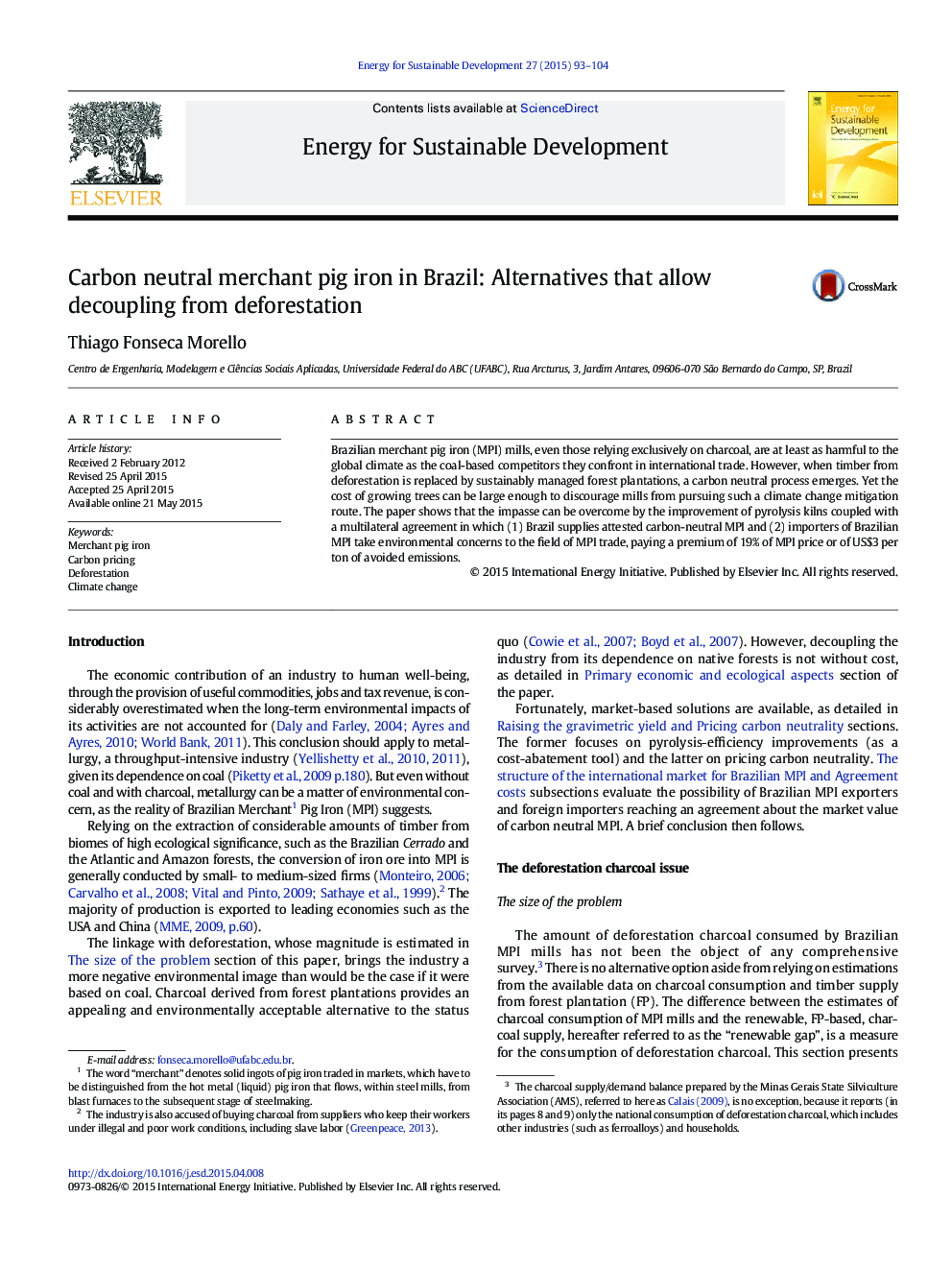| Article ID | Journal | Published Year | Pages | File Type |
|---|---|---|---|---|
| 1046875 | Energy for Sustainable Development | 2015 | 12 Pages |
•Merchant pig iron (MPI) making emits more GHG if based on deforestation than on coal.•The GHG neutrality forest plantations can provide to Brazilian MPI has a high cost.•Pyrolysis optimization significantly reduces this cost by economizing timber.•Brazil should commit to supply attested carbon-neutral MPI.•Importers should commit to pay a premium of US$3 per ton of avoided emissions.
Brazilian merchant pig iron (MPI) mills, even those relying exclusively on charcoal, are at least as harmful to the global climate as the coal-based competitors they confront in international trade. However, when timber from deforestation is replaced by sustainably managed forest plantations, a carbon neutral process emerges. Yet the cost of growing trees can be large enough to discourage mills from pursuing such a climate change mitigation route. The paper shows that the impasse can be overcome by the improvement of pyrolysis kilns coupled with a multilateral agreement in which (1) Brazil supplies attested carbon-neutral MPI and (2) importers of Brazilian MPI take environmental concerns to the field of MPI trade, paying a premium of 19% of MPI price or of US$3 per ton of avoided emissions.
